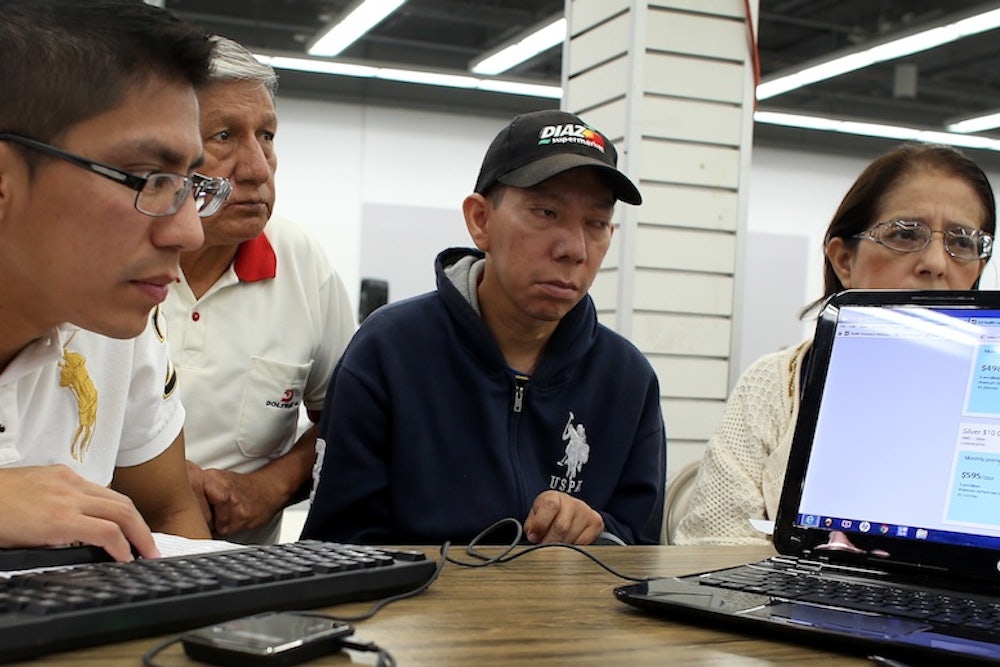A casual reader of the news over the past few days might think Obamacare is an unmitigated failure—an unfolding disaster that will be to President Obama what Katrina and the Iraq War were to Bush. You have the Department of Health and Human Services reducing its projections for expected enrollment next year, the Supreme Court taking up a case that could wipe out a huge chunk of the program for a huge chunk of the country, and the right wing in high dudgeon over videotaped comments by MIT economist Jonathan Gruber.
This is nothing new for Obamacare. Waves of bad publicity seem to pummel the program every few months—sometimes for news that is genuinely bad, sometimes for news that is ginned up by political opponents. But the most important indicator of progress isn't headlines. It's data on what’s actually happening and how people using the program feel.
Today, one day before next year’s open enrollment period launches, we have one new piece of information. And it's good.
It’s a poll, from the Gallup Corporation, of people who bought insurance on the new marketplaces last year. Gallup asked, how would you rate the quality of your insurance coverage? More than 70 percent rated it as “good” or “excellent.” The numbers were largely consistent with what all people who have insurance replied.

Then Gallup asked, are you satisfied with the cost? This time, 75 percent said yes. And, again, the numbers were right in line with what most Americans say.

As the pollsters concluded:
Americans who obtained new health insurance policies in 2014 using the government exchanges are roughly as positive about their healthcare coverage and the quality of healthcare they receive as the average insured American, and are more satisfied with the cost of their coverage. More than two-thirds of the newly insured who purchased coverage through federal or state exchanges intend to renew their exchange policies, while another 7% plan to look for a different policy through the exchanges.
This isn’t the first time research has shown that people who bought coverage on the new marketplaces have been pleased with their coverage. A July study by the Commonwealth Fund produced nearly identical numbers, with 68 percent of respondents rating their coverage as “good,” “very good,” or “excellent,” and 70 percent saying they could afford the care they need. (See the infographic at the end of this item.)
These surveys don’t tell us everything, obviously. For one thing, over the course of a year, relatively few people will have the kind of serious medical problems that truly test an insurance policy. The primary concern, with health care, is always with that minority of people who do—and how they fare. A true universal coverage system that guaranteed truly comprehensive coverage would have numbers that were higher still, so that a higher percentage found their medical coverage affordable.
But the non-group market—that is, people buying coverage on their own—is traditionally the part of the insurance market where people have struggled the most, because decent coverage was so hard to find. The Gallup poll, which reinforces the Commonwealth Fund findings, is a sign of progress for millions of people.
You hear a lot about what’s wrong with the coverage available through the marketplaces and some of these criticisms are legitimate. The narrow networks of providers are confusing, for example, and lack of sufficient regulations leaves some patients unfairly on the hook for ridiculously high bills. But overall the plans turn out to be as popular as other forms of private and public insurance. It’s one more sign that, if you can just block out the negative headlines and political attacks, you’ll discover a program that is working.
